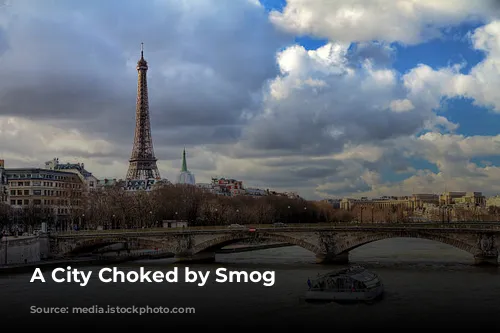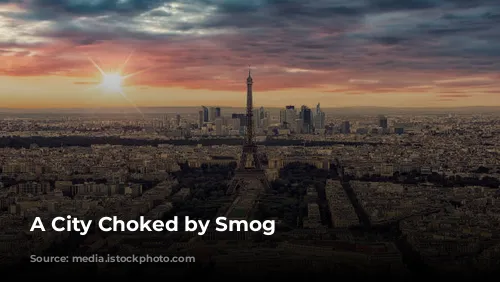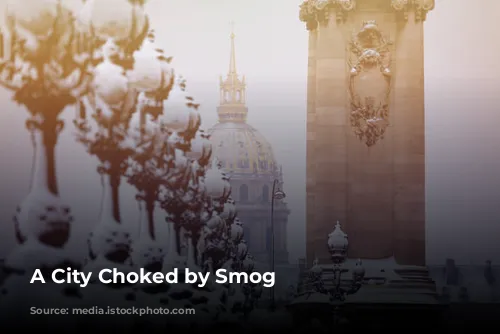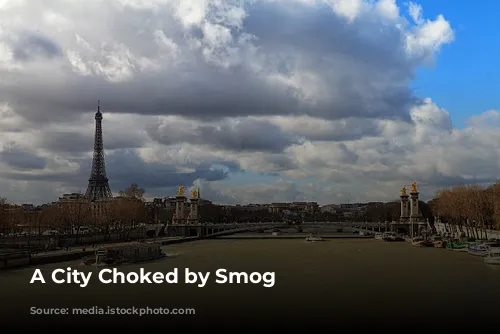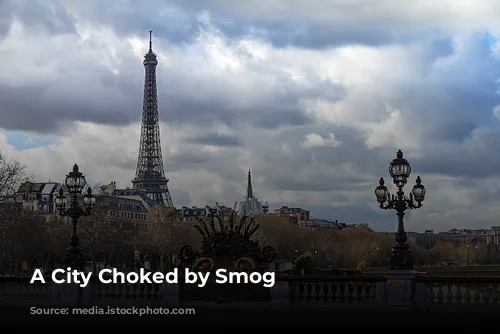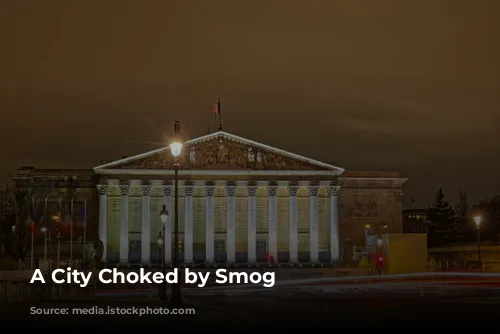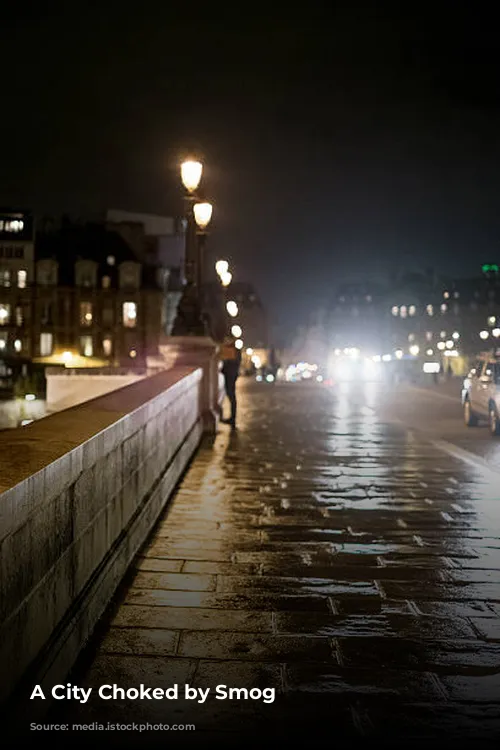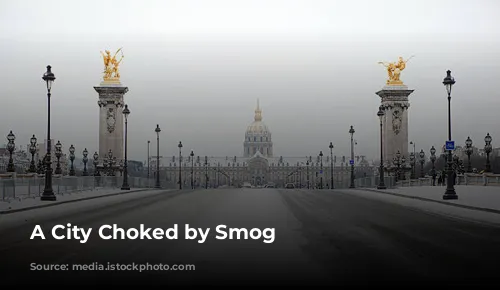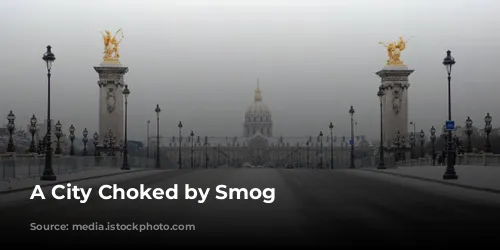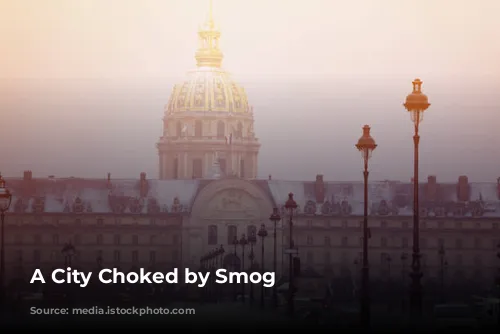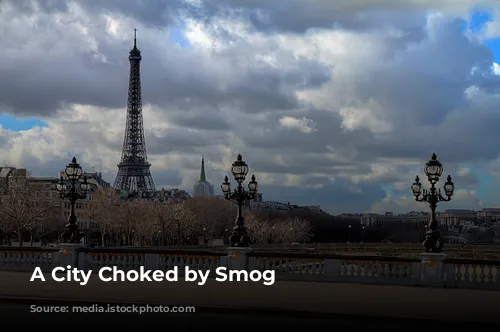The City of Lights has been shrouded in a thick, unhealthy haze, making the iconic Eiffel Tower barely visible. Paris has been struggling with the worst winter pollution in a decade, and the situation has become a serious health concern.
The city’s air quality has reached alarming levels, with pollution comparable to breathing eight cigarettes a day. This dire situation is a result of the cold weather trapping exhaust fumes, smoke from wood-burning fireplaces, and industrial pollutants.
The Parisian authorities have taken drastic measures to address the crisis. This includes implementing driving bans for private vehicles on alternate days, based on license plate numbers. However, these restrictions were largely ignored by drivers and have been lifted for the weekend.
To encourage the use of alternative modes of transportation, the city has provided free public transportation and access to the Vélib and Autolib services, which are shared bike and electric car programs, respectively.
Over the weekend, air quality showed signs of improvement due to reduced traffic and some wind. But experts have warned that the situation could worsen again this week due to ongoing weather conditions that trap pollutants.
Fighting for Clean Air
The French government has taken notice of the severe air pollution and is committed to tackling this challenge.
The government is considering extending a “super bonus” of €10,000 to light trucks and taxis that wish to replace diesel vehicles with electric ones. This incentive program is part of a broader initiative to promote the use of electric vehicles.
France already offers a €10,000 euro incentive for individuals purchasing electric cars and taxis. Starting in January, a bonus of €1,000 will be available for buyers of electric scooters.
The Mayor of Paris, Anne Hidalgo, has pledged to ban all diesel vehicles from the city by 2020.
The city has also introduced a new requirement for motorists to display air-quality certificates on their vehicles, indicating their emissions levels. This measure aims to restrict traffic during periods of high pollution and will be mandatory in the Paris region starting on January 16.
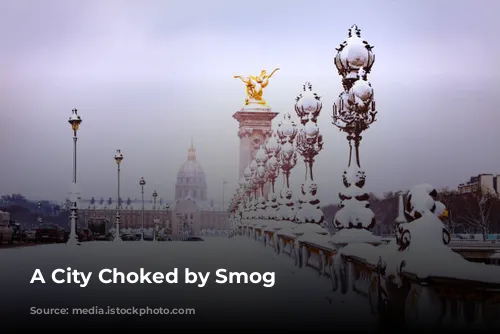
The Health Impact of Air Pollution
Air pollution is a serious health hazard, causing premature deaths from cancer and respiratory illnesses. According to the French Institute of Public Health, fine-particle pollution contributes to 48,000 premature deaths annually in France, representing 9% of all deaths.
Hospitals in the Paris region and southeastern France are on high alert for emergency respiratory problems. Over 2,000 asthmatic children have been treated in Parisian hospital emergency rooms.
The government has advised residents to limit their time spent outdoors.
The smog hanging over Paris is a stark reminder of the urgent need to address air pollution and its devastating health consequences. By implementing these measures, the French government hopes to improve air quality and protect the health of its citizens.
